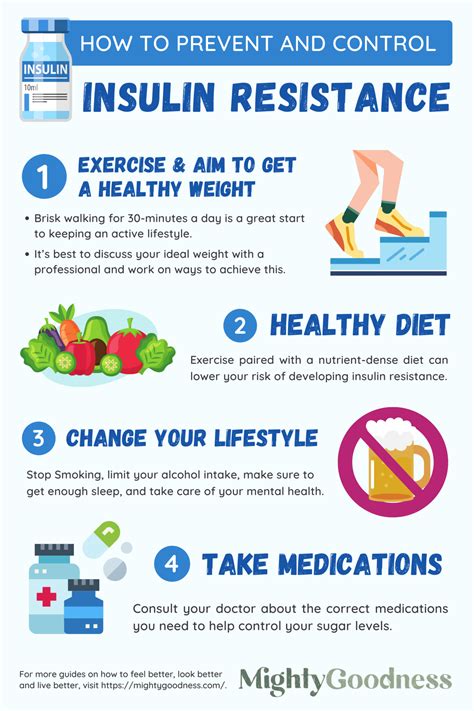How to Reduce Insulin Resistance: A Comprehensive Guide
Insulin resistance is a condition where your body's cells don't respond properly to insulin, a hormone that helps glucose (sugar) from food enter your cells for energy. This leads to a buildup of glucose in your bloodstream, potentially causing serious health problems like type 2 diabetes, heart disease, and more. But the good news is, you can take proactive steps to reduce insulin resistance. This guide outlines effective strategies to improve your insulin sensitivity and regain control of your health.
Understanding Insulin Resistance: What's Happening in Your Body?
Before diving into solutions, it's crucial to understand the underlying mechanisms. When you eat, your pancreas releases insulin to help your cells absorb glucose. In insulin resistance, your cells become less responsive to insulin's signal, resulting in higher blood sugar levels. This persistent high blood sugar can damage your blood vessels and organs over time.
Key Factors Contributing to Insulin Resistance:
- Unhealthy Diet: A diet high in processed foods, sugary drinks, and unhealthy fats is a major contributor. These foods lead to rapid spikes in blood sugar, overwhelming your pancreas and reducing insulin sensitivity.
- Lack of Physical Activity: Regular exercise improves insulin sensitivity by helping your cells utilize glucose more efficiently. Sedentary lifestyles significantly increase the risk of insulin resistance.
- Excess Weight, Particularly Abdominal Fat: Carrying excess weight, especially around the abdomen (visceral fat), is strongly linked to insulin resistance. This fat releases substances that interfere with insulin signaling.
- Genetics and Family History: A family history of type 2 diabetes or insulin resistance increases your risk.
- Sleep Deprivation: Insufficient sleep disrupts your hormones, including those involved in glucose regulation, leading to impaired insulin sensitivity.
- Stress: Chronic stress elevates cortisol levels, a hormone that can impair insulin function.
Effective Strategies to Reduce Insulin Resistance
Now that we understand the contributing factors, let's explore practical strategies to combat insulin resistance:
1. Dietary Changes: Fueling Your Body for Optimal Insulin Sensitivity
Prioritize Whole Foods: Focus on a diet rich in whole, unprocessed foods like fruits, vegetables, lean proteins, and whole grains. These foods provide sustained energy without causing significant blood sugar spikes.
Limit Processed Foods, Sugary Drinks, and Unhealthy Fats: These contribute significantly to insulin resistance. Minimize consumption of sugary sodas, processed snacks, and foods high in saturated and trans fats.
Control Portion Sizes: Even healthy foods can contribute to insulin resistance if consumed in excessive amounts. Pay attention to portion control to prevent blood sugar surges.
Consider a Low-Carbohydrate Approach: Some individuals find that reducing carbohydrate intake improves their insulin sensitivity. However, it's important to consult a healthcare professional or registered dietitian to determine the best approach for your individual needs.
2. Regular Physical Activity: Moving Your Way to Better Health
Aim for at Least 150 Minutes of Moderate-Intensity Exercise Per Week: This could include brisk walking, jogging, cycling, or swimming. Consistency is key.
Incorporate Strength Training: Building muscle mass improves insulin sensitivity and helps your body burn more calories at rest.
Find Activities You Enjoy: To make exercise sustainable, choose activities you find enjoyable and are likely to stick with.
3. Weight Management: The Importance of a Healthy Weight
Gradual Weight Loss: Even modest weight loss can significantly improve insulin sensitivity. Aim for a gradual and sustainable approach rather than quick fixes.
Focus on Healthy Habits: Combine dietary changes and regular exercise for optimal weight management.
4. Prioritize Sleep and Manage Stress: The Often-Overlooked Factors
Aim for 7-9 Hours of Quality Sleep Per Night: Establish a regular sleep schedule and create a relaxing bedtime routine.
Implement Stress-Management Techniques: Practice relaxation techniques like yoga, meditation, or deep breathing exercises to manage stress levels.
5. Consult a Healthcare Professional: Personalized Guidance for Success
Regular checkups with your doctor or a registered dietitian are crucial. They can provide personalized guidance, monitor your progress, and adjust your plan as needed. They can also help rule out other underlying medical conditions.
Disclaimer: This information is for educational purposes only and should not be considered medical advice. Always consult with a healthcare professional before making significant changes to your diet or exercise routine, especially if you have pre-existing health conditions.
